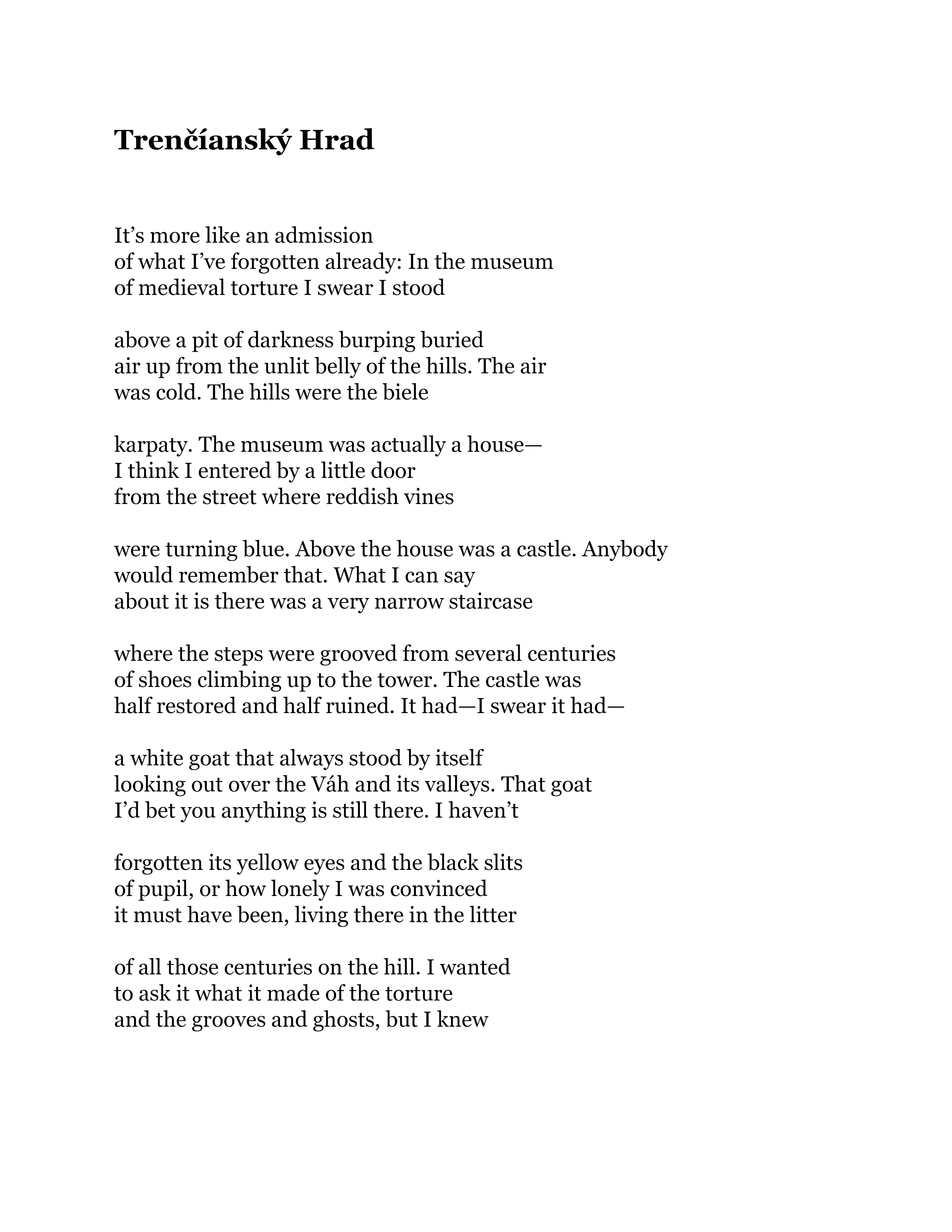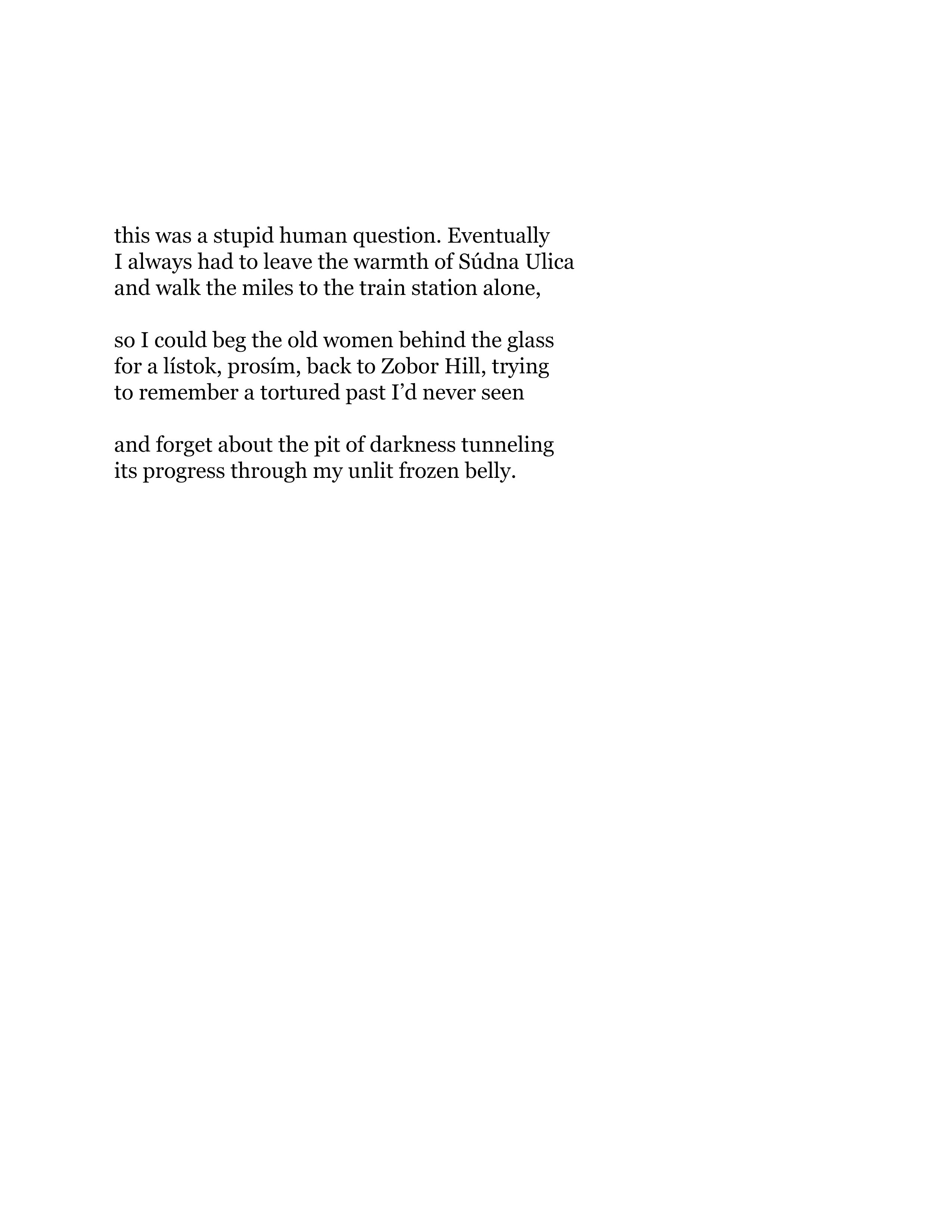4 poems by Sofia Fall
1 essay by Robin Gow,
on the poems of Sofia Fall
Soft Elegies
With gentleness and an eye for detail, these poems feature brief moments of connection and memory that unfurl into intimate universes. From a meditation with a heron to family stories that take us back to the poet’s family in Croatia, these poems tell stories of the ripples we make in one another’s lives. Through the use of a conversational tone, form, and vivid imagery, the poet creates a fabric of kinship that explores farewells and departures, essentially, elegies.
The poem “Trenčíanský Hrad” is sewn with asides where the speaker pauses to qualify their recollections with phrases like “I swear” and “I think.” These speech patterns conjure the tone of someone sitting on their porch or around a fire to share a story. They make the story of traveling to this museum feel intimate and almost like a confession or secret. We typically think of elegies as a little more formal but the poet captures the essence of the elegy as a moment of mourning in this soft and fleeting way. The speaker says, “Eventually/ I always had to leave the warmth of Súdna Ulica” which, to me, is that farewell and the source of the mourning being expressed.
Prose-blocking formatting in “Mirila” conveys the weight and complexities of the emotions the speaker feels about their grandfather passing. Whereas line breaks serve as breaths or pauses in a line of verse, the condensed format confront the reader with the density of loss the speaker feels. They process the grief alongside curiosities about their grandfather’s emotions and experiences. There is not only the loss of their grandfather but loss of the peach trees as the speaker reflects, “There are no peach trees in Romulus now.” The elegy is about a tether to heritage and history as much as it is about the grandfather.
In “The Heron” the theme of grief and elegy is brought forth strongest through images. The speaker describes the heron in the water, saying, “It was staring / into the depths, observing the great swirls / of foam ballooning out into the utter / blackness of the channel.” I read this as a moment of the speaker finding themself in the bird, finding camaraderie there. In the lines “utter / blackness of the channel” I sense that grief that can occur at a threshold. Then, the real elegy of the poem is the moment the speaker understands that there was not the connection they thought there was between themself and the heron as they say, “The heron never looked in my direction.”
While not elegies in the formal sense, I think these poems explore the knotted nature of grief for their speakers. Woven through conversational tones, deliberate and impactful forms, and shadowy imagery, these are elegies sung into the darkness of the waves and beneath the ghosts of mountain peach trees.


